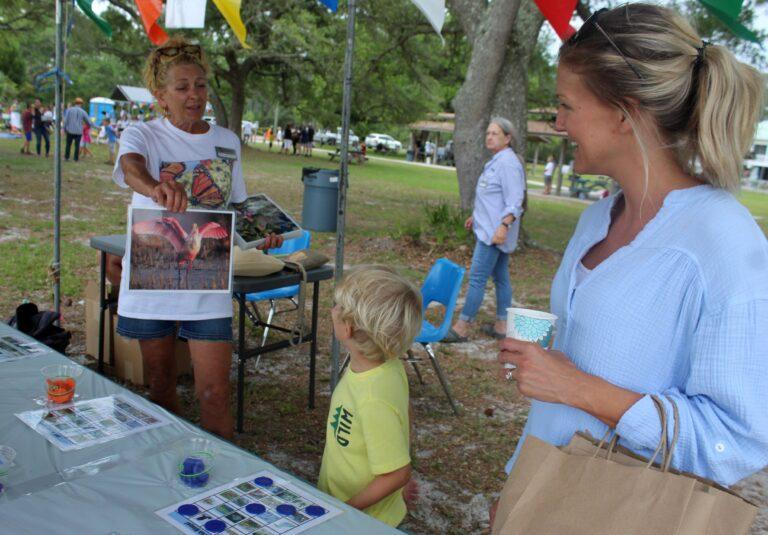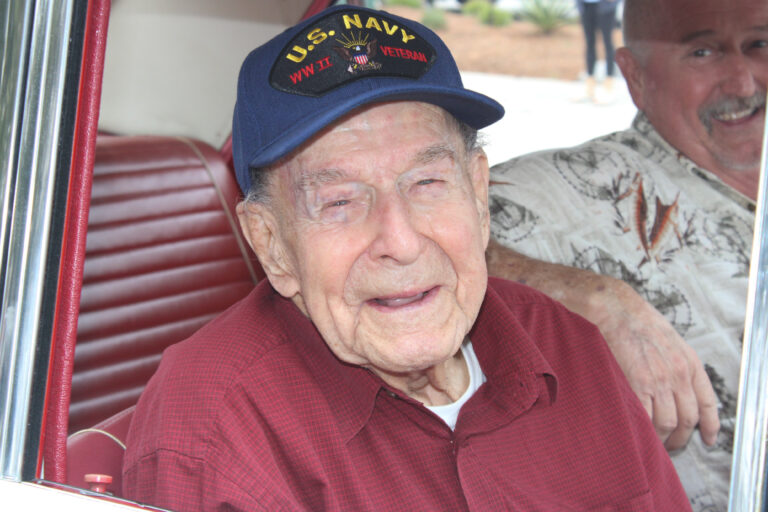Legacy Post Disclaimer
This is a #Legacy post imported from The Apalachicola Time’s previous platform. If you’re experiencing issues with this article, please email us at news@nevespublishing.com.
Welding the workforce
Mike Youngblood could turn the air conditioning down in the
new welding lab if he wanted to.
But he doesnt, because he wants his 32 students to sweat.
When they go out in the field welding, thats how its
going to be, he said. Like when they get a job.
And thats what theyre going to get, if they pass all their
certifications, which will mean a nice paycheck.
Like for Jesse Ray, in Panama City, or another few in Tallahassee,
where $18 to $20 per hour pay, plus overtime, can mean as much as $25. One graduate
enlisted in the Army and is hoping to be in the field of mechanics/welding, and
two others chose to continue their welding education at Lively Technical
College.
Youngbloods been at the school for four years, but this is
the first full one where he has a fully equipped, freshly-built lab to work
with.
I just had that little shop outside, three machines, that
was it, he said. We took it over part of last year.
During the administration of former Superintendent Traci Yoder,
school district leaders embarked on the Triumph Gulf Coast Grant application process in the 2017-18 school year. The district was awarded Phase
I for $2.33 million which included the welding facility as well as the ABC Schools
STEM building.
The Phase I grant required a match of $984,500 (including
ABC school’s match). Culpepper Construction built the 48,000 square foot building
for $1.4 million, with the cost of the CRA architectural plans and services at
$118,020.
First implemented in 2018-19 in a temporary
facility, the program had five students earn their first welding certification, and last
October, 10 students earned welding industry certifications, five
of which were earned by first-year students.
Youngblood now has at his disposal 18 brand-new 360 Lincoln multiprocessor
welding machines for students to learn shielded metal arc welding, to master
how to put down a perfect weld bead bed, and then move on to 2G horizontal, 3G vertical
and 4G overhead welding.
Mostly boys, but a few females, Youngbloods pupils can begin
as freshmen and spend as many as four years in the program.
I like to have girls, they have a steadier hand, he said.
Youngbloods goal over the next several months is to ready students
for certification testing in January and then in May. His role will be to do
in-house instruction inside the lab, and then have testers from South
Florida, under contract with the program, come up to decide whether a student has
earned a certification. I want to first make sure they can pass it,
Youngblood said.
Originally from South Georgia, Youngblood, 59, learned his welding
and pipefitting skills from his dad, before embarking on a career traveling
throughout the United States working on a variety of commercial sites,
including oil refineries and power plants.
He quit traveling to sites in 2013, and after that took on
jobs in the Atlanta, Georgia area before deciding to work in the school system.
This year has been a good year, Youngblood said. Theyre
all getting after it. Im really happy. So many wish they had taken it
(welding) when they first learned about it.
One thing he stresses is the need for safety.
For a month, in the classroom adjacent to the welding floor,
the students spend a month on virtual reality, absorbing the lessons through simulated
scenarios.
You have to be with these schoolkids, Youngblood said.
The new welding lab is the first phase in the expansion of
the school districts career and technical industry certification programs
The district was successful in securing Phase II for $1.22
million to provide students with instruction and certifications in the field of
unmanned space flight. This drone program was implemented during the 2019-20
school year, and while certifications have lagged, the district is in talks to
divvy up those requirements to other programs.
The district pre-application for Phase III for $6.6 million, accepted by the Triumph board, is envisioned for a new bus
garage, which would include classroom space and additional bays to include heavy
diesel mechanics, automotive mechanics, and marine mechanics career and technical
industry certification programs.
This grant project also includes remodeling of
the gymnasium at the Franklin Learning Center (district office) campus to
implement a CDL training program. There remains ongoing discussion with Triumph
whether all components of Phase III will be able to be implemented
Phase III also includes an environmental component to
provide programs on the importance of maintaining local shorelines, and enabling
the district to expand the medical academy to include offering certifications for
medical administrative assistant and electronic health records.



Meet the Editor
David Adlerstein, The Apalachicola Times’ digital editor, started with the news outlet in January 2002 as a reporter.
Prior to then, David Adlerstein began as a newspaperman with a small Boston weekly, after graduating magna cum laude from Brandeis University in Waltham, Massachusetts. He later edited the weekly Bellville Times, and as business reporter for the daily Marion Star, both not far from his hometown of Columbus, Ohio.
In 1995, he moved to South Florida, and worked as a business reporter and editor of Medical Business newspaper. In Jan. 2002, he began with the Apalachicola Times, first as reporter and later as editor, and in Oct. 2020, also began editing the Port St. Joe Star.